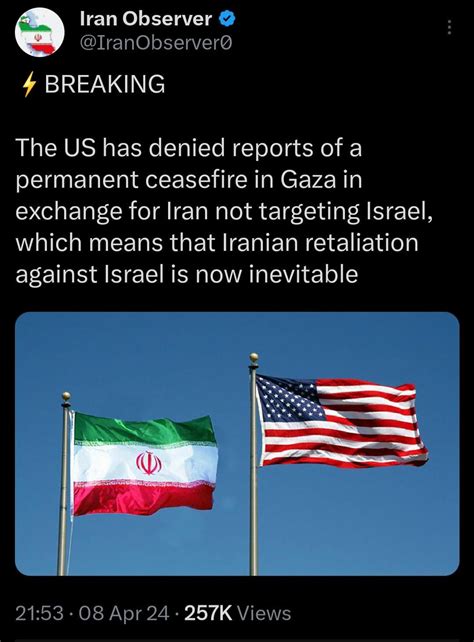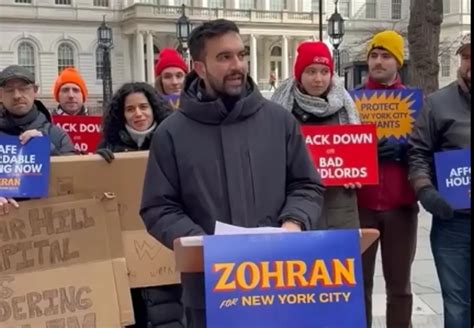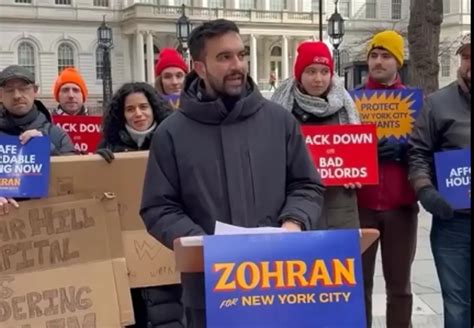
Iran’s retaliation for the alleged Israeli strike on its consulate in Damascus, Syria, which killed several high-ranking Islamic Revolutionary Guard Corps (IRGC) commanders, is considered almost certain, leaving international observers and policymakers focused on determining the timing, location, and methods of the response. While the consensus points towards an inevitable Iranian reaction, the scale and nature of that response remain shrouded in uncertainty, potentially triggering a significant escalation in regional tensions.
The attack on the Iranian consulate, which resulted in the deaths of Brigadier General Mohammad Reza Zahedi, a senior commander in the Quds Force, and several other officers, has been widely attributed to Israel, though Israeli officials have neither confirmed nor denied their involvement. This ambiguity, characteristic of Israeli security policy, adds another layer of complexity to the situation. According to the original Yahoo News report, the “when, where, how” of Iran’s response are the key questions dominating discussions among analysts and government officials.
The potential consequences of Iran’s retaliation are far-reaching, affecting not only the immediate region but also international relations and global security. A miscalculated response could lead to a broader conflict, drawing in other regional and international actors. Therefore, understanding the factors influencing Iran’s decision-making process is crucial for anticipating and mitigating potential risks.
Several factors will likely weigh heavily on Iran’s calculus. These include the desire to deter future attacks, the need to maintain credibility within its network of regional allies, and the imperative to avoid a full-scale war with Israel or the United States. Balancing these competing interests will be a delicate act, requiring careful consideration of the potential costs and benefits of each course of action.
Potential Scenarios for Retaliation
Experts suggest several possible scenarios for Iran’s response, ranging from direct military strikes against Israeli targets to indirect actions through its proxies in the region.
- Direct Military Strikes: This could involve missile or drone attacks on Israeli military or strategic infrastructure. While this option would send a strong message of deterrence, it also carries the highest risk of escalation. Iran possesses a significant arsenal of ballistic missiles and drones, some of which are capable of reaching Israel. However, Israel’s air defense systems, including the Iron Dome, David’s Sling, and Arrow systems, could intercept many of these projectiles. The success rate of these interceptions would significantly impact the outcome of such an attack and the likelihood of further escalation.
- Proxy Attacks: Iran could utilize its network of proxy groups, such as Hezbollah in Lebanon, Hamas in Gaza, or militias in Iraq and Syria, to launch attacks against Israeli or American interests in the region. This approach would allow Iran to maintain a degree of deniability and avoid direct confrontation. However, it could also be less effective in achieving Iran’s objectives and could provoke a response against the proxy groups themselves, potentially drawing Iran into a wider conflict indirectly. Attacks on U.S. bases in Iraq or Syria by Iranian-backed militias are a recurring concern, and any significant casualties could trigger a strong American response.
- Cyberattacks: Iran has demonstrated increasing capabilities in the cyber domain and could launch attacks against Israeli infrastructure, government systems, or financial institutions. While cyberattacks may not result in physical casualties, they can cause significant economic damage and disruption. This option might be seen as a less escalatory response compared to military strikes, but its effectiveness in deterring future attacks is uncertain.
- Targeted Assassinations: Iran could attempt to assassinate Israeli officials or individuals associated with the alleged attack on the consulate. This type of response would be highly symbolic and could generate significant fear and uncertainty within Israel. However, it could also provoke a strong retaliatory response and further escalate tensions.
- Attacks on Israeli Interests Abroad: Iran could target Israeli embassies, businesses, or individuals in other countries. This option would carry significant risks, as it could violate international law and provoke condemnation from the international community. However, it would also allow Iran to project its power beyond the immediate region and send a message that Israel is not safe anywhere.
Impact on Regional Stability
The potential for escalation is a major concern, and the international community is urging restraint from all parties. The United States has reiterated its unwavering support for Israel’s security, while also urging de-escalation. Other countries, including China and Russia, have called for a peaceful resolution to the conflict.
A wider conflict between Iran and Israel could have devastating consequences for the region, potentially drawing in other countries and destabilizing the global economy. The conflict could disrupt oil supplies, increase refugee flows, and exacerbate existing humanitarian crises.
The potential for a nuclear dimension to the conflict is also a significant concern. While Iran maintains that its nuclear program is for peaceful purposes, its enrichment activities have raised concerns about its intentions. If Iran were to develop nuclear weapons, it would dramatically alter the strategic landscape in the Middle East and could trigger a nuclear arms race.
Diplomatic Efforts
Efforts to de-escalate the situation are ongoing, with various countries and international organizations attempting to mediate between Iran and Israel. However, the deep-seated mistrust and animosity between the two countries make any diplomatic breakthrough unlikely in the short term.
The United States, as a key ally of Israel and a major player in the region, has a crucial role to play in preventing further escalation. The Biden administration has emphasized its commitment to Israel’s security while also urging restraint and seeking to revive the Iran nuclear deal. However, the prospects for a renewed nuclear deal remain uncertain, given the current political climate in both Iran and the United States.
The European Union is also playing a role in diplomatic efforts, seeking to engage with both Iran and Israel to promote de-escalation and stability. However, the EU’s influence in the region is limited, and its ability to mediate between the two countries is constrained.
Internal Political Considerations in Iran
Iran’s decision-making process will also be influenced by internal political considerations. The death of senior IRGC commanders in the Damascus attack has put pressure on the Iranian government to respond forcefully. However, the government must also consider the potential economic and political consequences of a major escalation.
The hardline factions within the Iranian government are likely to favor a more aggressive response, while more pragmatic elements may prefer a more restrained approach. The Supreme Leader, Ayatollah Ali Khamenei, will ultimately make the final decision, weighing the various factors and considerations.
The Iranian public’s reaction to the attack and the government’s response will also be a factor. A perceived failure to retaliate could damage the government’s credibility and embolden its adversaries. However, a reckless or disproportionate response could also lead to widespread public discontent and instability.
The Role of International Law
The attack on the Iranian consulate in Damascus has raised questions about international law. Consulates and embassies are generally considered inviolable under international law, and attacks against them are considered a violation of sovereignty. However, Israel has argued that the consulate was being used as a base for military operations, which could justify the attack under certain circumstances.
The legal justification for the attack is complex and contested. However, the attack has undoubtedly raised tensions and further complicated the already fraught relationship between Iran and Israel.
Potential Long-Term Implications
The current crisis could have significant long-term implications for the Middle East and the global security environment. A wider conflict between Iran and Israel could lead to a realignment of alliances in the region and could create new opportunities for extremist groups.
The crisis could also accelerate the proliferation of weapons of mass destruction in the region, as countries seek to deter potential aggressors. The collapse of the Iran nuclear deal could further exacerbate these trends.
The international community must work together to prevent further escalation and to promote a peaceful resolution to the conflict. This will require a concerted effort to address the underlying causes of the conflict and to build trust between the parties.
Frequently Asked Questions (FAQ)
- Why is Iran expected to retaliate?
Iran is expected to retaliate to maintain its credibility, deter future attacks, and uphold its image as a regional power capable of protecting its interests and allies. The attack on its consulate in Damascus, which resulted in the death of high-ranking IRGC commanders, is seen as a direct challenge to its authority and necessitates a response to restore its standing and prevent future incursions. As quoted by Yahoo news, the international communities agree upon the imminence of this retaliation.
- What are the potential forms of Iranian retaliation?
The potential forms of Iranian retaliation range from direct military strikes against Israeli targets, either within Israel or abroad, to indirect actions through its proxy groups in the region, such as Hezbollah in Lebanon, Hamas in Gaza, or militias in Iraq and Syria. Cyberattacks on Israeli infrastructure and targeted assassinations of Israeli officials are also possibilities. The choice of retaliation method will depend on Iran’s assessment of the risks and potential consequences, balancing the desire for a strong response with the need to avoid a full-scale war.
- What is the role of the United States in this situation?
The United States plays a crucial role due to its close alliance with Israel and its significant military presence in the Middle East. The U.S. has reiterated its unwavering support for Israel’s security and has cautioned Iran against escalating the conflict. However, the U.S. also seeks to prevent a wider war and has urged de-escalation. The U.S. could also be involved in diplomatic efforts to mediate between Iran and Israel, though the prospects for success are uncertain. Any direct attack on US assets in the region will most likely be met with military response as well.
- How could this situation escalate into a larger conflict?
Escalation could occur through several pathways. A direct Iranian attack on Israel could trigger a strong Israeli response, leading to a cycle of retaliatory strikes. Attacks by Iranian proxies on Israeli or U.S. targets could also provoke a broader conflict. A miscalculation or misunderstanding could also lead to unintended escalation. The involvement of other regional actors, such as Saudi Arabia or Turkey, could further complicate the situation. Finally, the use of unconventional weapons, such as chemical or biological weapons, could have catastrophic consequences.
- What are the potential long-term implications of this crisis?
The potential long-term implications of this crisis are significant. A wider conflict between Iran and Israel could destabilize the entire Middle East, leading to a realignment of alliances and the emergence of new power dynamics. The crisis could also accelerate the proliferation of weapons of mass destruction in the region, as countries seek to deter potential aggressors. The collapse of the Iran nuclear deal could further exacerbate these trends. The crisis could also have a significant impact on the global economy, disrupting oil supplies and increasing refugee flows.
Expanded Analysis and Context:
To fully grasp the gravity of the situation, it is essential to consider the historical context and the underlying factors that have fueled the animosity between Iran and Israel. The two countries were once allies, but relations deteriorated sharply following the 1979 Islamic Revolution in Iran. Since then, Iran has become a staunch opponent of Israel, viewing it as an illegitimate state and a major source of instability in the Middle East.
Israel, in turn, views Iran as an existential threat, citing its nuclear ambitions, its support for terrorist groups, and its bellicose rhetoric. Israel has repeatedly warned that it will not allow Iran to develop nuclear weapons and has carried out covert operations to disrupt its nuclear program.
The conflict between Iran and Israel is not solely about nuclear weapons. It is also a struggle for regional dominance. Iran seeks to expand its influence in the Middle East through its support for proxy groups and its involvement in regional conflicts. Israel, on the other hand, seeks to maintain its military superiority and to prevent Iran from becoming a regional hegemon.
The Syrian civil war has further exacerbated tensions between Iran and Israel. Iran has provided significant support to the Assad regime, while Israel has carried out airstrikes against Iranian targets in Syria. The presence of Iranian forces and proxy groups in Syria poses a direct threat to Israel’s security, and Israel has vowed to prevent Iran from establishing a permanent military presence in the country.
The economic sanctions imposed on Iran by the United States and other countries have also contributed to the tensions. Iran views the sanctions as an act of economic warfare and has vowed to resist them. The sanctions have significantly weakened the Iranian economy and have fueled public discontent.
The current crisis is taking place against a backdrop of heightened regional tensions and uncertainty. The ongoing conflicts in Yemen, Syria, and Iraq have created a volatile security environment, and the potential for escalation is always present.
The international community must act decisively to prevent further escalation and to promote a peaceful resolution to the conflict. This will require a concerted effort to address the underlying causes of the conflict and to build trust between the parties.
Deeper Dive into Potential Retaliation Methods:
Direct Military Strikes (Elaborated):
If Iran chooses a direct military response, the type of weaponry employed would be carefully considered. Ballistic missiles, such as the Shahab-3 or the more advanced Sejjil, offer range and destructive power but are also easily detectable and potentially interceptible. Cruise missiles, like the Soumar, are more difficult to intercept due to their low-altitude flight paths but are generally less destructive. Drones, such as the Shahed-136 “kamikaze” drone, offer a cost-effective way to saturate Israeli air defenses.
The targets selected would also be carefully chosen. Military bases, airfields, and naval facilities would be prime targets, as would strategic infrastructure such as power plants and desalination plants. A strike on civilian targets would be highly escalatory and would likely provoke a devastating response from Israel.
Proxy Attacks (Elaborated):
If Iran opts for a proxy attack, the choice of proxy group and the location of the attack would depend on several factors. Hezbollah, with its significant arsenal of rockets and missiles, is the most capable Iranian proxy and could launch attacks from Lebanon. Hamas, though primarily focused on Gaza, could also launch rocket attacks into Israel. Militias in Iraq and Syria could target U.S. forces or Israeli interests in those countries.
The advantage of using proxies is that it allows Iran to maintain a degree of deniability and to avoid direct confrontation. However, it also makes it more difficult to control the scope and intensity of the response. A proxy attack could also provoke a response against the proxy group itself, potentially drawing Iran into a wider conflict indirectly.
Cyberattacks (Elaborated):
Iran has invested heavily in its cyber capabilities in recent years and is capable of launching sophisticated cyberattacks against a variety of targets. These could include government websites, financial institutions, and critical infrastructure. A successful cyberattack could disrupt essential services, steal sensitive data, and cause significant economic damage.
The advantage of cyberattacks is that they are difficult to attribute and can be carried out covertly. However, they may not be as effective in deterring future attacks as military strikes.
Targeted Assassinations (Elaborated):
If Iran chooses to assassinate Israeli officials or individuals associated with the attack on the consulate, it would likely target individuals involved in intelligence or military operations. The assassination could be carried out by Iranian agents or by proxy groups.
The advantage of assassinations is that they are highly symbolic and can generate significant fear and uncertainty. However, they also carry a high risk of retaliation and could provoke a strong Israeli response.
Attacks on Israeli Interests Abroad (Elaborated):
If Iran chooses to target Israeli interests abroad, it could attack Israeli embassies, businesses, or individuals in other countries. This could be carried out by Iranian agents or by proxy groups.
The advantage of this option is that it allows Iran to project its power beyond the immediate region and to send a message that Israel is not safe anywhere. However, it also carries significant risks, as it could violate international law and provoke condemnation from the international community.
The Importance of De-escalation:
The current crisis is a dangerous one, and the potential for escalation is very real. It is imperative that all parties exercise restraint and avoid actions that could further inflame tensions. The international community must work together to promote de-escalation and to create an environment in which a peaceful resolution to the conflict can be found.
Considerations for the International Community:
- Diplomacy: Continued diplomatic efforts are crucial to facilitate communication and de-escalation between Iran and Israel. Third-party mediation, potentially involving countries with established relationships with both nations, could help bridge the gap and identify potential compromises.
- Sanctions Relief: While controversial, targeted sanctions relief, contingent on verifiable steps towards de-escalation and nuclear non-proliferation, could create an incentive for Iran to moderate its behavior.
- Regional Security Architecture: The development of a more inclusive regional security architecture that addresses the concerns of all parties could help reduce tensions and promote stability. This could involve confidence-building measures, arms control agreements, and joint security initiatives.
- Addressing Root Causes: Addressing the underlying causes of the conflict, such as the Israeli-Palestinian conflict and regional power struggles, is essential for achieving lasting peace.
The path forward is fraught with challenges, but the alternative – a wider war in the Middle East – is simply unacceptable. The international community must work tirelessly to prevent such a catastrophe from occurring.









